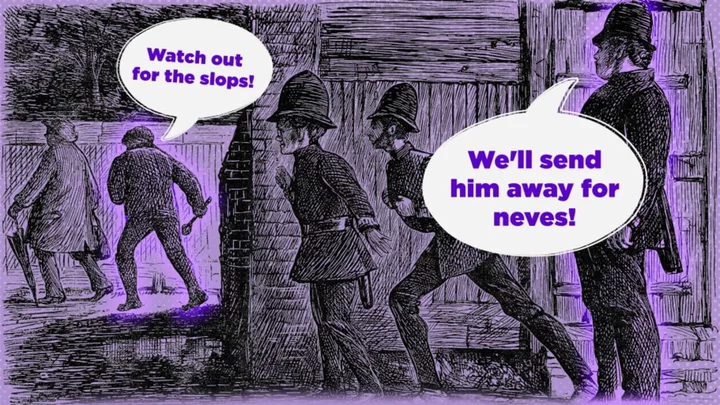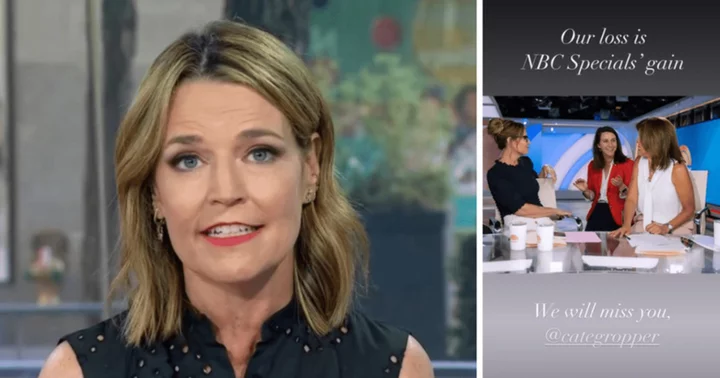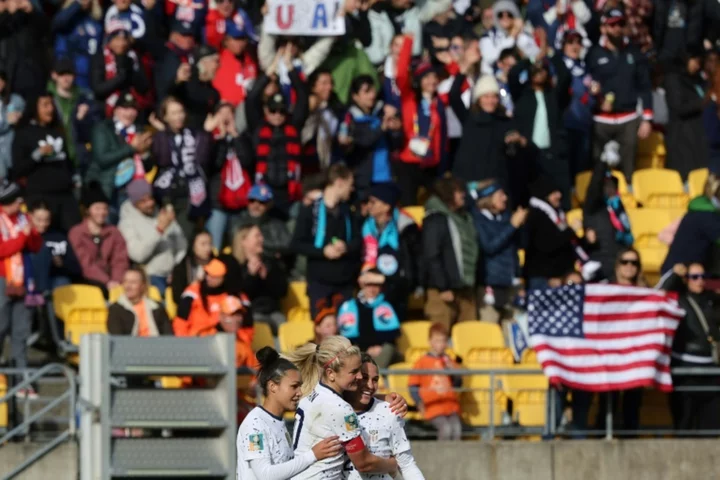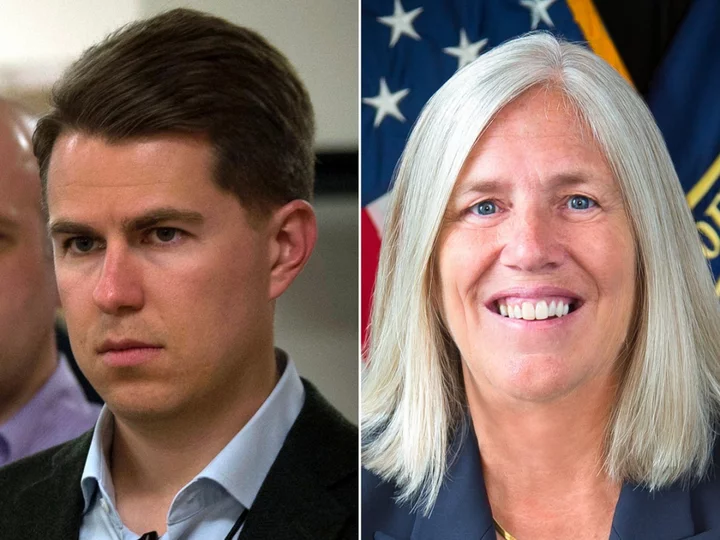Jonathon Green—editor-in-chief of the world’s largest historical slang dictionary, Green’s Dictionary of Slang—has called slang a lexical look at our “unfettered Freudian id.” But that doesn’t really apply to back slang, which is more akin a word puzzle.
The coded language (like slang in general) was often associated with criminal activity, but it’s believed to have originated with London’s costermongers—street merchants who sold apples or other fruit—in the Victorian era. Perhaps the practice spread to criminals from there, but the actual mechanics of back slang are as innocent as a Wordle, if a bit more inconsistent: Some terms are perfectly backwards, like neves (seven). Others go backwards and then evolve a bit further (like kayfabe). While you can back slang virtually any word, some terms have caught on more than others, like the following.
1. Slop
Slop, the back slang term for “police,” has been around since the mid-1850s, though it took some lexical evolution to get there. Police backwards is ecilop, which doesn’t exactly roll off the tongue like a Robert Creeley poem. So ecilops became slops in a characteristic example of word evolution: Words tend to settle on a form and pronunciation people can easily say. An example from Frederick W. Robinson’s 1879 book Coward Conscience offers solid advice to a wanted man: “You'd better cut—the slops are after you.” Slop can also be seen as rhyming slang thanks to cop/slop.
2. Yob
This term is found in Australia and New Zealand as well as England, and it’s been around since the mid-1800s. A yob is a boy, although it can also refer to a grown dude, fella, guy, or, more accurately, a bloke (though there’s also back slang for that: okeblo). An 1894 example from The Sporting Times is a buffet of slang that demonstrates the gender-specific meaning: “And you bet that each gal, not to mention each yob, Didn't care how much ooftish [money] it cost ‘em per nob [head].”
3. Kayfabe
Kayfabe is to pro wrestlers what omertà is to mobsters. Back in the days when pro wrestlers and promoters would never, ever admit their matches were predetermined, they were upholding kayfabe: the illusion that wrestling is a real competition. The term is far older and may date to the carnivals that spawned professional wrestling in the U.S., but the Oxford English Dictionary’s (OED) first known example is from Dave Melter’s Wrestling Observer newsletter in 1988: “The heels [bad guys] were told to stay away [probably from a public setting involving good guys] because of kayfabe violations, but few listened to the order.” Kayfabe is speculated to be a variation of “be fake” that gives back slang a Pig Latin-type twist.
4. Neves
This reversal of seven (which is also sometimes spelled sivens) has been around since the mid-1800s, and the meaning has infiltrated a place often frequented by prisoners: jail. The first known use was recorded in Henry Mathew’s 1851 book London Labour and the London Poor, which records Neves-yenep as an inversion of sevenpence. A 1984 example from a slop periodical, Police Review, shows the term’s penal evolution: “A five-year sentence is a ‘handful’; a seven-year one, in a rare example of back slang, is a ‘neves’.” (You have to admire the cleverness of a handful equaling five. Slang is the greatest poet.)
5. Oozeboo
Paul Dickson wrote a book—Drunk: The Definitive Drinker’s Dictionary—that claims and demonstrates that there are more slang terms for drunk than any other condition. So no wonder drinking finds a place in back slang, specifically this mutation of booze, which Green’s traces back to an 1886 mention of an oozeboo merchant—presumably a bartender or liquor store worker. Oozeboo is a clever slicing of booze that also sounds like a symptom of having drunk too much of it.
6. Dab
This term for a bed is one of many words in English (not to mention all the other languages of this big blue world) that has an uncertain origin—but the best guess is back slang is at work. An 1812 issue of The Sporting Mag is the first known use of dab: “Those who had been accustomed to a downy dab.” Alliteration plus back slang is sure to give any word nerd a yobish grin.
7. Kabgnals
Finally, let’s get meta, and we don’t mean Koobecaf. In James Ware’s 1909 book Passing English of the Victorian Era, the author indicates how the term kabgnals can be used as an invitation to converse in back slanglish: “The letters of back slang (less the needless ‘c’), and uttered rapidly to indicate that this mode of conversation will be agreeable to speaker. Another form is Kabac genals.” (The mention of the “needless c” is notable for slang and language generally: unnecessary appendages tend to fall off.) So, yes, Virgina, there is back slang for back slang. It’s a wonderful lexical world.
Are you a logophile? Do you want to learn unusual words and old-timey slang to make conversation more interesting, or discover fascinating tidbits about the origins of everyday phrases? Then get our new book, The Curious Compendium of Wonderful Words: A Miscellany of Obscure Terms, Bizarre Phrases, & Surprising Etymologies, out now! You can pick up your copy on Amazon, Barnes & Noble, Books-A-Million, or Bookshop.org.
This article was originally published on www.mentalfloss.com as 7 Fun and Fascinating Pieces of Back Slang.









